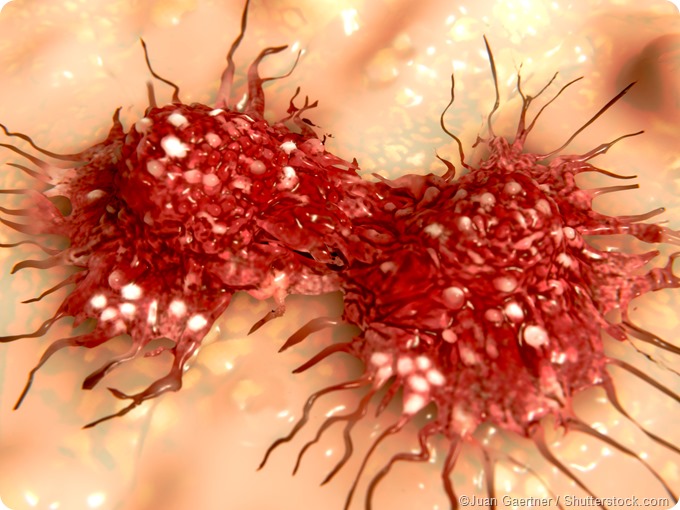Targeted cancer therapies, also sometimes referred to as molecularly targeted drugs or therapies, focus their action on molecular targets that are involved in the growth, progression, and spreading of cancerous cells. They can be used in the treatment of cancer and tend to be associated with fewer side effects than traditional therapies due to their specific affinity for the molecules linked to cancerous growth.

Targeted therapies play a central role in precision medicine, which is a form of medicine that utilizes specific characteristics of a patient’s proteins and genetic makeup to improve health and prevent or treat disease.
Molecular targets
A key element for targeted cancer therapies that help offer a tangible benefit for cancer treatment is the identification of suitable molecular targets that play a role in the growth and survival of cancer cells.
Comparing the difference in the quantity of individual proteins between normal and cancer cells is one approach to finding potential targets. Proteins that are more abundant in cancerous cells than normal cells are ideal targets for therapy, particularly if they are important in the growth and survival of cells.
Additionally, potential molecular targets may be identified by the presence of mutated proteins that may drive the progression of cancer.
Researchers may also seek abnormalities in chromosomes that are present in cancer cells but absent from normal cells. In some cases, these mutations lead to the production of a fusion gene and fusion protein, which encourages the replication of cancerous cells.
What are ‘targeted’ cancer drugs? | Cancer Research UK
Development of targeted therapies
The development of targeted therapies is sometimes referred to as “rational” drug design because there is a strong emphasis on identifying key areas or molecular targets that can be utilized before the development of a drug.
The human epidermal growth factor receptor 2 (HER-2) protein is overexpressed in some cancer cells, such as certain breast or stomach cancers. Trastuzumab is a targeted cancer therapy that may be used in the treatment of cancers with HER-2 overexpression.
The BRAF protein, which is normally involved in the signaling of cell growth, is often present in a mutated form (PRAF V600E) in melanomas. Vemurafenib is a targeted therapy that may be used to treat patients with these melanomas.
The BCR-ABL fusion protein is present in some cases of leukemia and promotes the growth of cancerous cells. This fusion protein is the target for the targeted therapy using imatinib mesylate.
Differences between targeted therapies and chemotherapy
The primary difference between targeted cancer therapies and chemotherapy is the specificity of the drug action.
Chemotherapy exerts its effect to destroy all rapidly dividing cells in the body because cancer cells tend to replicate more quickly than other healthy cells in the body. However, this can lead to side effects associated with the destruction of cells that normally divide quickly, such as the cells of the hair and skin.
Targeted cancer therapies interact specifically with a target molecule, to inhibit cancer growth or spread. Unlike chemotherapy, many targeted cancer therapies are cytostatic, blocking the proliferation of the cells, and do not destroy the cancerous cells in the body.
Limitations of targeted cancer therapies
There are some limitations to targeted therapies and their role in cancer treatment. For example, cancer cells can develop resistance to the action of the therapy. This can occur by a change in the genetic makeup of the target so that the target cannot access it as easily, or by the tumor developing a new method to grow without dependency on the target of the therapy.
To minimize the effect of this limitation, it is usually recommended to use targeted therapies in combination with other treatments. This may include other targeted therapies or traditional cancer treatments, such as chemotherapy or radiotherapy.
As with any other medication that has an effect on the body, targeted therapies may also cause undesirable side effects, such as alterations to the skin and the blood or hypertension.
References
- https://www.cancer.gov/about-cancer/treatment/types/targeted-therapies/targeted-therapies-fact-sheet
- http://www.cancer.org/treatment/treatmentsandsideeffects/treatmenttypes/targetedtherapy/targeted-therapy-what-is
- https://www.ncbi.nlm.nih.gov/pmc/articles/PMC4012258/
- http://www.aafp.org/afp/2008/0201/p311.html
Further Reading
Last Updated: Feb 26, 2019